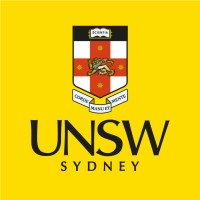Laureate Postdoctoral Fellow - Mathematics & Statistics
Job no: 525268
Work type: full time
Location: Sydney, NSW
Categories: Post Doctoral Research Associate
- One of Australia’s leading research & teaching universities
- Vibrant campus life with a strong sense of community & inclusion
- Enjoy a career that makes a difference by collaborating & learning from the best
At UNSW, we pride ourselves on being a workplace where the best people come to do their best work.
The School of Mathematics and Statistics currently has more than sixty continuing academic staff and more than thirty research staff as well as visiting academics. UNSW is the only university in Australia to be ranked in the top 100 in the world in Mathematics and Statistics by each of the four ranking bodies: CWTS Leiden, ARWU, USNews, QS.
The School embodies a broad range of research interests in the areas of applied mathematics, pure mathematics, statistics, and data science. It has particular research strengths in Algebra, Analysis, Number Theory, Bayesian and Monte Carlo Methods, Biomathematics, Biostatistics and Ecology, Combinatorics, Computational Mathematics, Data Science, Dynamical Systems and Integrability, Finance and Risk Analysis, Fractional Calculus, Functional and Harmonic Analysis, Geometry and Mathematical Physics, Nonparametric Statistics, Ocean and Atmospheric Sciences, Optimisation, Stochastic Analysis, and Stochastic Modelling.
The Laureate Postdoctoral Fellow will undertake research within a five-year Laureate Fellow project funded by the Australian Research Council and UNSW Sydney. The project seeks to advance the analysis of dynamical systems through the development of novel techniques in functional analysis, operator theory, ergodic theory, differential geometry, and/or data science. Specific topics of focus include, but are not limited to, linear response, random and nonautonomous dynamical systems, spectral analysis, machine learning, data-driven dynamics, stability/perturbation theory/rigorous numerics.
Possible applications of the new theory include the analysis of spatiotemporal data arising from weather and climate observations/models and from models of social dynamics. Motivating aims include the discovery and analysis of hidden large-scale patterns in data/models, elucidating mechanisms underlying the emergence of these large-scale phenomena and their response to perturbations, and devising reliable automatic schemes for predicting this emergence and quantifying their response.
About the role
- $106K - $113K plus 17% Superannuation and annual leave loading
- Fixed term – 2 years
- Full time (35 hours)
The Laureate Postdoctoral Fellow will be integrated into the ARC Laureate Fellow’s existing group, along with two other Laureate Postdoctoral Fellows, and reports to Laureate Professor Gary Froyland. The role has no direct reports.
Specific responsibilities for this role include:
- Development of theory that significantly advances the field of dynamical systems, using techniques from areas such as functional analysis, operator theory, ergodic theory, differential geometry, data science, and/or machine learning.
- Implement algorithms that efficiently analyse dynamical systems arising from idealised models or data.
- Collaborative publications in leading international mathematical and scientific journals.
- Provide comprehensive analysis and reports in relation to the research project in a timely and effective manner.
- Perform small-team research, coordinate research activities, and participate in the setting of future research directions of the project.
- Assist with the supervision and mentoring of PhD students to develop the next generation of academics (as per the norms of the discipline).
- Present results of research at conferences and other venues.
- Align with and actively demonstrate the Code of Conduct and Values.
- Cooperate with all health and safety policies and procedures of the university and take all reasonable care to ensure that your actions or omissions do not impact on the health and safety of yourself or others.
Selection Criteria
To be successful in this role you will have:
- A PhD in Mathematics (or closely related discipline) or close to completion, preferably in dynamical systems and related areas.
- Excellent oral and written communication skills.
- An outstanding track record of research publications (relative to career opportunities).
- Demonstrated high-level analytical and problem-solving skills.
- Demonstrated ability to work independently and as part of a team with minimal supervision.
- Demonstrated capacity to deliver high-quality project outcomes in a timely manner.
- Computer programming experience, preferably with Julia, Matlab and/or Python.
- An understanding of and commitment to UNSW’s aims, objectives and values in action, together with relevant policies and guidelines.
- Knowledge of health and safety responsibilities and commitment to attending relevant health and safety training
You should systematically address the selection criteria listed within the position description in your application.
For informal queries, please see the below contact details.
Otherwise, please apply online - applications will not be accepted if sent directly to the contact listed.
Applications close: June 27th, 2024
Find out more about working at UNSW at www.unsw.edu.au
UNSW aspires to be the exemplar Australian university and employer of choice for people from diverse backgrounds. UNSW aims to ensure equality in recruitment, development, retention and promotion of staff and that no-one is disadvantaged on the basis of their gender, cultural background, disability, sexual orientation or identity or Indigenous heritage. We encourage everyone who meets the selection criteria to apply.
UNSW partners with Australia’s leading diversity organisations, networks, and campaigns. Please refer to UNSW’s diversity offerings for further information on our flexible work and leave options, and support for carers (childcare, parent rooms, parental leave).
Advertised: 31 May 2024 AUS Eastern Standard Time
Applications close: 27 Jun 2024 AUS Eastern Standard Time
